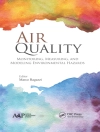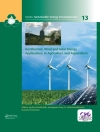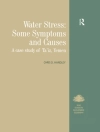This book reviews advanced nanotechnology in food, health, water and agriculture. In food, nanobiosensors display an unprecedented efficiency for the detection of allergens, genetically modified organisms and pathogens. In agriculture, nanofertilisers improve plant nutrition by releasing nutrients slowly and steadily. Nanomaterials synthesised using biomass such as fungi are further found remarkable to clean waters polluted by heavy metals. However, as newly introduced materials in the environment, nanoparticles may exhibit toxic effects, which are reviewed in this book. In the context of climate change, methods for water desalinisation are also presented.
Cuprins
1. Nanobiosensors for food and agriculture.- 2. Physical, chemical and biochemical biosensors to detect pathogens.- 3. Nanotechnology in the food industry.- 4. Plant nano-nutrition.- 5. Toxicological impact of carbon nanomaterials on plants.- 6. Sustainable desalination process.- 7. Fungal-based nanotechnology for heavy metal removal.- 8. Nanomaterials reactivity and applications for wastewater cleanup.- 9. Bioremediation of heavy metals.- 10. Quantitative structure-activity modelling of toxic compounds.












